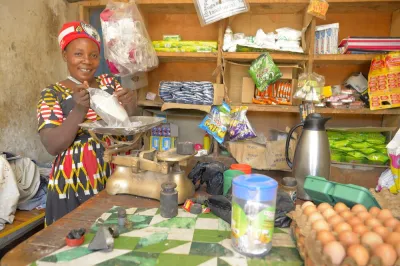Three Principles to Help Financial Cooperatives Weather the COVID-19 Storm

“We are already seeing liquidity pressure on some of our savings and credit cooperatives.” This was the refrain last week from several financial cooperative supervisors when 30 of them gathered for an ICURN webinar to discuss the economic effects of COVID-19. While the responses to date by central banks and financial sector supervisors to the economic fallout have generally been swift and forceful, the inclusion of financial cooperatives in these safety measures has been lacking.
In 125 countries, financial cooperatives (i.e. cooperative banks, credit unions, savings and credit cooperatives, etc.) serve 487 million people through 89,000 financial cooperatives with $11.5 trillion in total assets. In only a few countries have financial cooperatives been deemed as domestically systemically important financial intuitions. But to the millions of service industry workers, small business owners or travel industry workers that are seeing their income declining fast, financial cooperatives are essential institutions.
During the recent online gathering by members of ICURN, the following likely stages of economic fallout from the pandemic were discussed:
- In the weeks ahead, some people may be able to increase their savings as they pull back spending, while larger numbers may have to use their savings as bills come due.
- In the months ahead, many recently un/underemployed may miss loan payments or require their loans to be re-scheduled or delay payments.
- This will lead to a need for increased loan provisions, and in turn will impact on longer term reductions in capital at financial cooperatives.
The stages above are similar to what financial cooperatives experience following a natural disaster, but this time we have no reliable predictions for when the storm will pass and how strong the storm will be. As financial cooperatives and their supervisors prepare for weathering the storm, supervisors may want to follow these three principles: 1) Transparency, 2) Keeping the System Strong and 3) Supervisory Judgment.
Transparency
To move through this turbulent period it’s critical that financial cooperatives are transparent with their supervisors about what is occurring and how they are being affected. This will mean increased reporting by financial cooperatives on liquidity positions, rescheduling, skipped payment programs and non-performing loans. A difficult but necessary piece is the need for financial cooperatives to keep making loan loss provisions for re-structured and delinquent loans, while targeted skipped payment programs are often being treated as current loans for now. As the economic impact could be longer term, it’s essential that financial cooperatives clearly understand the risk ahead of them and transparency will aid in that.
Keeping the System Strong
While transparency is necessary, it’s not a sufficient condition to weather this storm. Many financial cooperatives already have needs for liquidity to meet members’ demand for their savings. In the Caribbean, Australia, Canada, South Africa and U.S., some financial cooperatives are already seeing isolated high demands for liquidity. While many G20 countries have or are putting in place mechanisms for allowing financial cooperatives to access central bank borrowing facilities, very few non-G20 countries have done so since they are less likely to be supervised by a specialized financial sector supervisor or central bank. In addition, a 2020 ICURN survey found that financial cooperatives in 88 percent of the G20 countries have deposit insurance while financial cooperatives in 79 percent of non-G20 countries do not.

Despite massive announcements by central banks to keep their economies afloat, there has been very little done to extend (public or private) lender of last resort or deposit insurance to financial cooperatives. As such, financial cooperatives, more so than banks, may have to rely on the capital they’ve built as opposed to waiting for bailouts. Those capital buffers primarily consist of two sources: retained earnings and non-withdrawable members shares. For many financial cooperatives, April and May are the months when they hold annual general meetings and declare dividends. While members may be looking for these dividends to be paid, financial cooperatives and their supervisors should be extremely cautious about paying dividends in this environment, as these funds may be what gets the financial cooperative through the crisis.
Financial cooperatives and their supervisors should also refrain from retrenchments just to keep a positive net income in short or medium term. As essential business, financial cooperatives need to make the necessary safety adjustments to their operations (i.e., remote services, social distancing, limited hours, etc.) to keep operations open to clear payments, make savings accessible, generate new emergency loans or restructure existing loans.
Supervisory Judgment
Despite the advances in SupTech, promises of artificial intelligence and even current regulations, financial cooperative supervisors will be increasingly expected to make judgment calls on how to proceed. Without the first principle of transparency between the financial cooperatives and their supervisors, these judgment calls will be difficult. Regulatory forbearance may be needed especially with financial cooperatives and standards for how to treat deferred or skipped rent and home loan payments.
Deciding how and when to act is difficult, especially as the way forward is so uncertain at this time. The 26th President of the United States, Teddy Roosevelt, had a process of decision-making that might help those feeling paralyzed on how to proceed. Roosevelt quipped, “in any moment of decision, the best thing you can do is the right thing, the next best thing is the wrong thing, and the worst thing you can do is nothing.”


